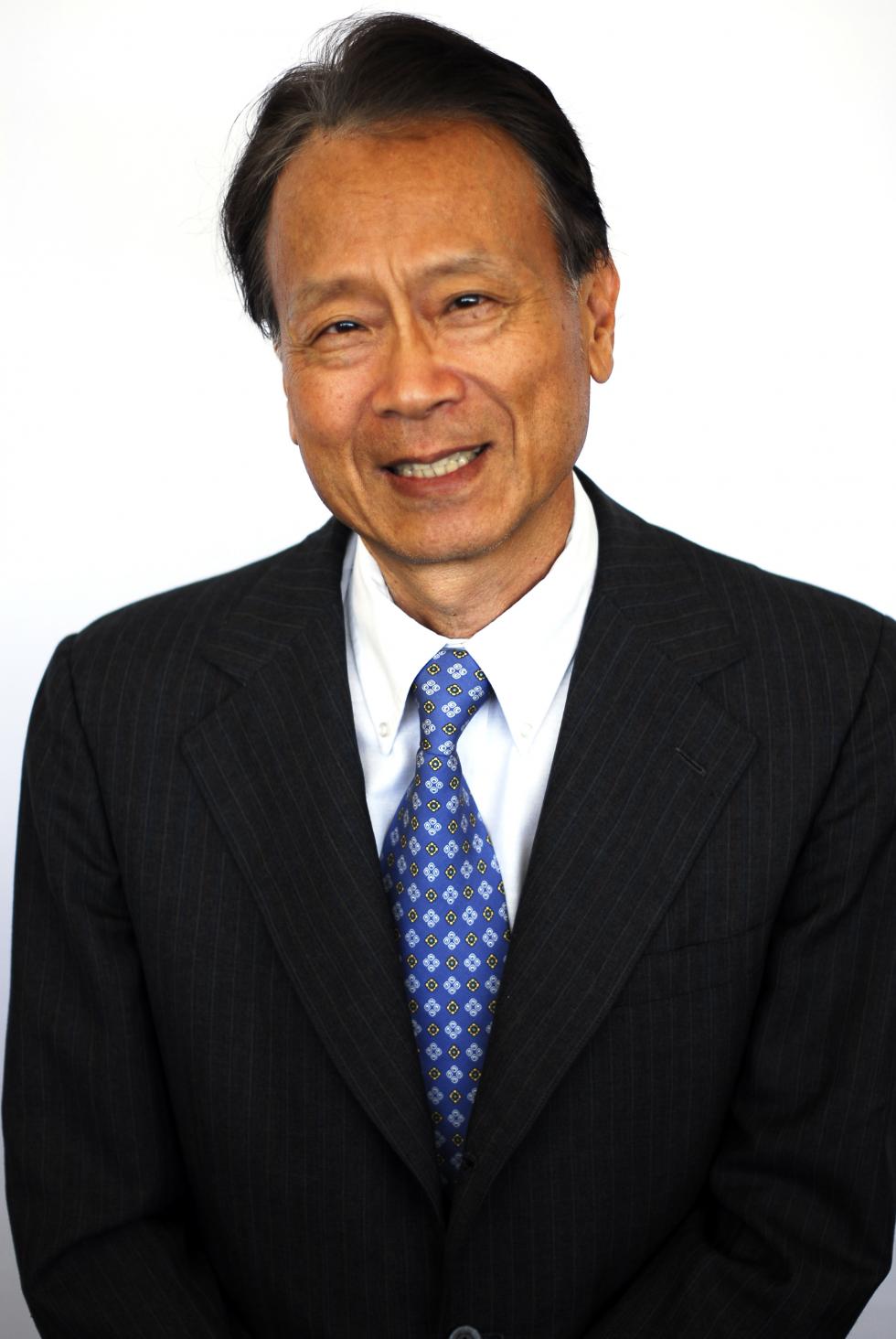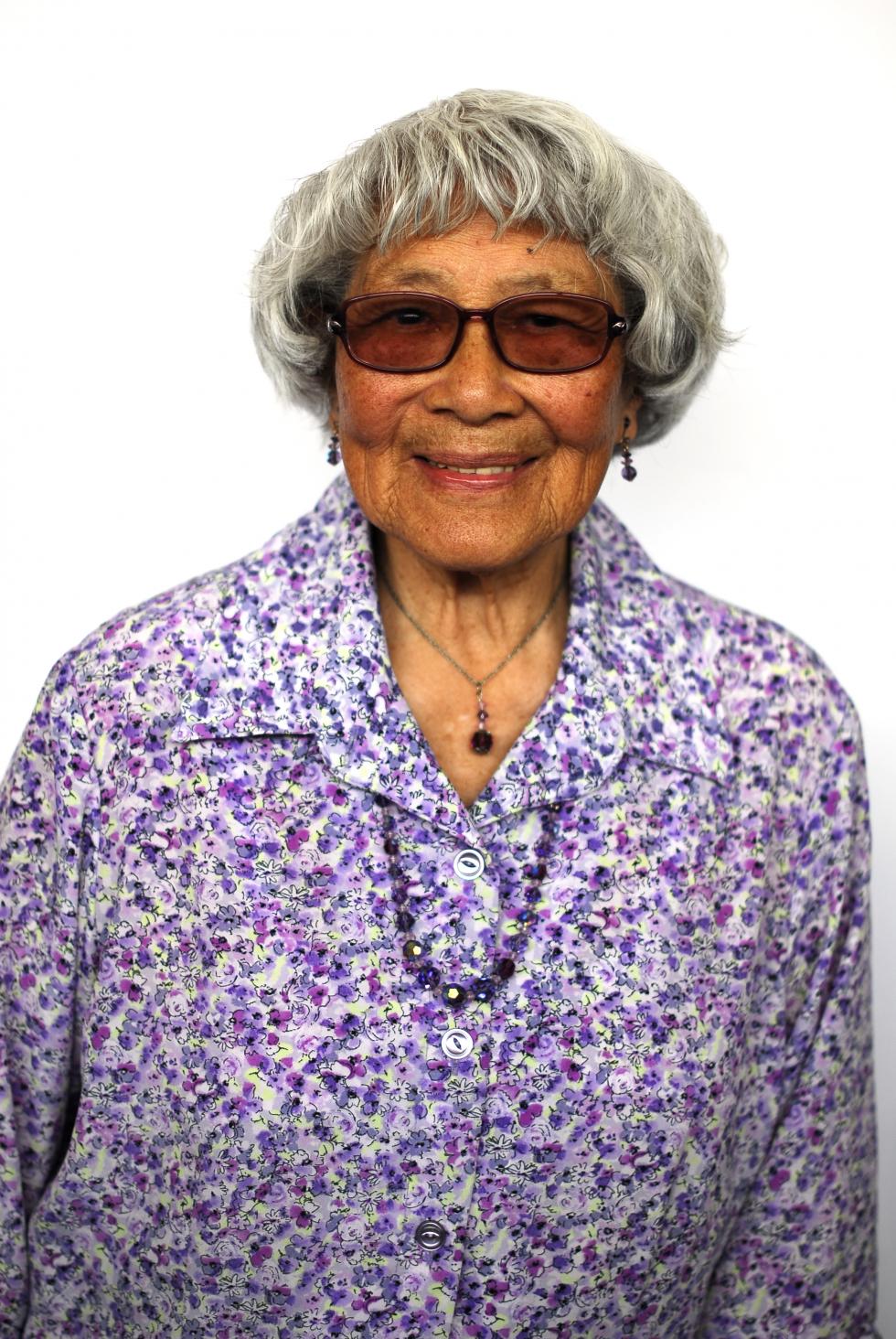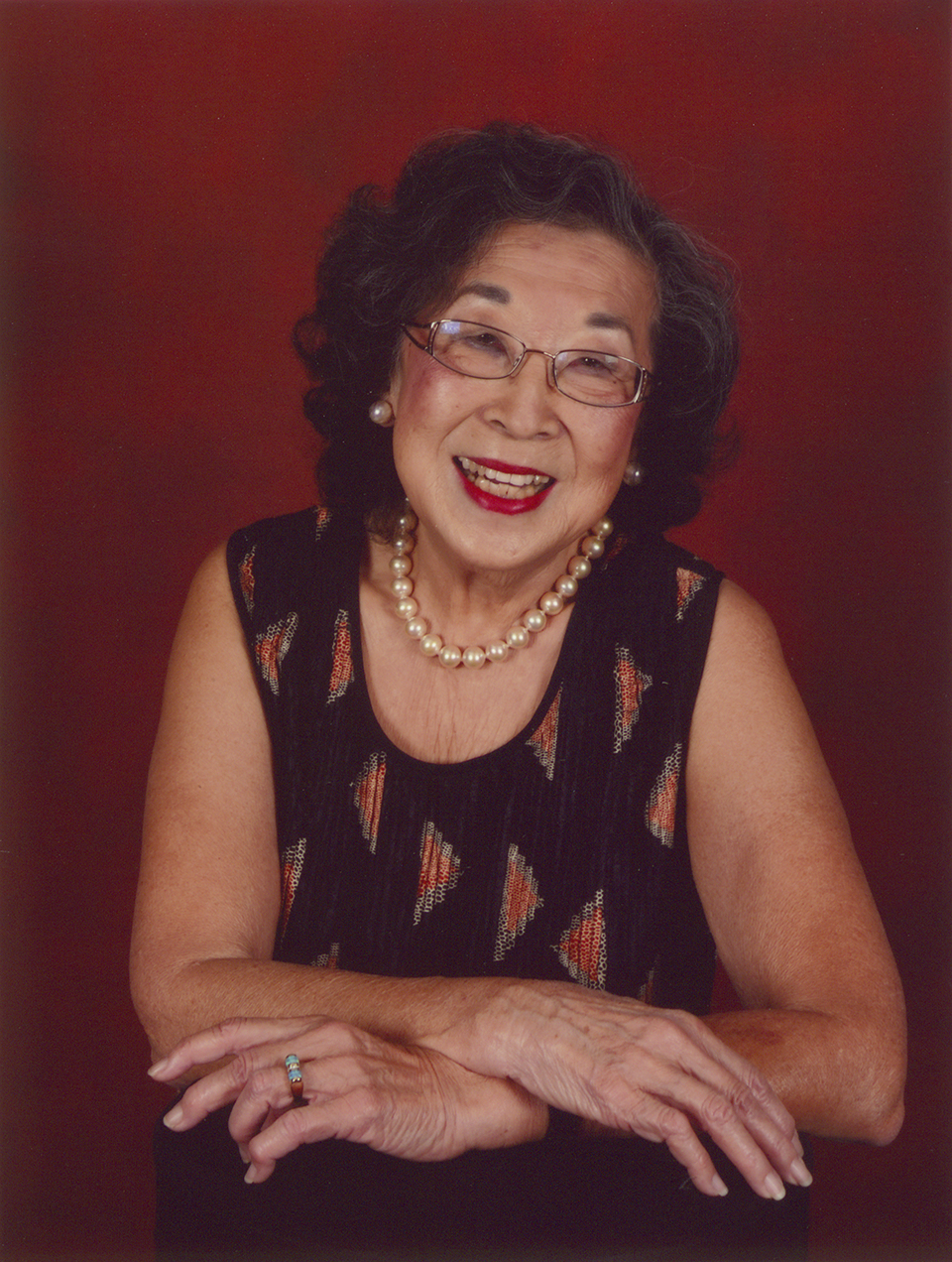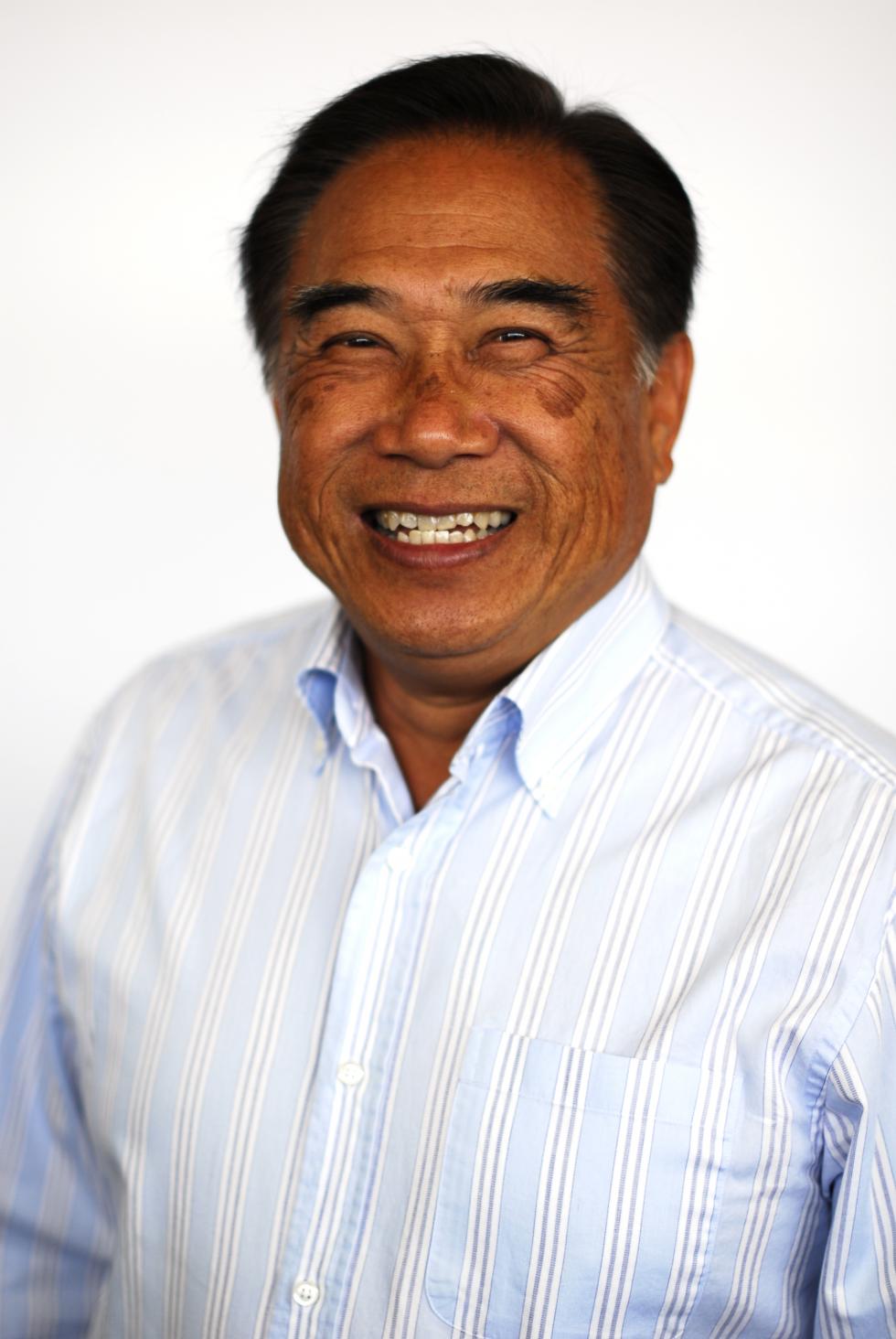John Chen was born in 1949 in Augusta, Georgia. He grew up in the south during the 1950s, a time of Jim Crow segregation. Born to parents who were scientists from China, his family was part of a contingent of approximately 5,000 students considered “stranded scholars.” Because of the communist takeover of China, they were unable to return to their ancestral homeland. John wrote an article about his family in Perspectives, Cal State LA’s history journal.
John speaks of his upbringing in the South, particularly in Tennessee. However, in many parts of the South, Chinese Americans were considered honorary whites, though federally, the Chinese were never recognized as such. John spent his childhood in white schools until he moved to California. Upon the completion of his mother’s degree at the University of Tennessee in 1956, she packed all their belongings in a 1950 Plymouth and drove 2,500 miles from the South to settle in the San Francisco Bay Area where his mother found a job with Gerber Baby Foods’ research division, then located in Oakland.
John Chen’s Oral History details a life dedicated to education and his particular love of history and philosophy. He first graduated from Pacific Union College with a major in history and minor in chemistry. He even received multiple degrees while a medical professional. In 1984, he completed in Child and Adolescent Psychiatry at USC. On the same day, he received his Ph.D. from Claremont Graduate School in philosophy. The following fall, he was accepted into UCLA Law School and graduated in 1987. Then he served as a clerk for Judge William P. Gray, a federal district court judge between 1987 and 1988 in downtown Los Angeles. He returned to his medical practice at L.A. County Mental Health Department and retired in 2004, but continued to train medical residents at Charles Drew University until 2008. He completed his Master’s in 2011 from Cal State LA and was admitted to the Claremont Graduate School in 2012, where he is working on a second Ph.D. in History.
John’s indefatigable spirit and pursuit of educational knowledge also mirrors his civic commitments. In 2015, John Chen helped create a public history exhibit about his family, featured at Cal State LA’s Kennedy Library. He is an active member of the Chinese Historical Society of Southern California and Chinese Community Oral History Project. Despite a busy academic schedule, John is a feature of the southern California community, especially in issues related to Asian American history.
Margaret Lew, known as Margie to close family and friends, and Aunty Choc to the children of her college friends, for her love of chocolates, is a celebrated member in the Chinese American community in Los Angeles. Margie grew up in San Francisco and spent her childhood at the Chinese Methodist Episcopal Home, a home for Chinese children. In San Francisco, she met and fell in love with Albert Lew, a U.S. Navy serviceman, during World War II. They were married on September 14th 1945, and are the proud parents of two children, Bobbi and Steven. Margie has four grandchildren and two great-grandchildren.
Margie’s Oral History reveals the textures of life during the war as well as a sojourner between two ethnic enclaves: San Francisco’s Chinatown and, later, Los Angeles, where Albert built their dream home in the shape of an “L,” representing Lew.
Margie was a dedicated civil servant in Los Angeles City Hall for nearly thirty years, beginning as a typist and retiring as chief clerk personnel. Margie was instrumental in LA City Employee Asian American Association, a multi-ethnic professional group that promoted equity and advancement for Asians and Pacific Islanders. She was the editor for its monthly newsletter, Amerasian Voice, from 1972 to 1982. Margie was also first editor for the Chinese Historical Society of Southern California’s monthly newsletter, News ‘n Notes, and Gum Saan Journal from 1975 to 1987. She received the Golden Spike Award from CHSSC in 2012.
As a young professional, Margie also pursued her passion for crafting. During her lunch hours, she and her colleagues would go to downtown Los Angeles hunting for crystal beads, buttons, and findings to create jewelry and crafts.
Margie is a dedicated volunteer who has contributed her time to literacy programs such as the Lauback Literacy Program at the Los Angeles Public Library, Grandparents and Books (GAB) at the Chinatown Library, and with the Alhambra City Library. She enjoyed best, the annual program, Reading-to-Students, at the Monterey Vista School in Monterey Park. She remains an enthusiastic volunteer and active member of the San Gabriel Presbyterian Church. She is active in the Chinese American community and continues to enjoy a robust social life.
Pauline Tso, née Wang, grew up during the turbulent years at the dawn of World War II. The occupation of Nanking (Nanjing) was an especially poignant when her family fled while Japanese forces bombed the city and their home. They left China, unable to ever return. Shortly after the bombing of Pearl Harbor, her family miraculously escaped from Java, on one of the two surviving ships out of fourteen. They crisscrossed the Pacific, again in 1944, on a dangerous six-week journey from Bombay, India to Los Angeles. The Wang family moved frequently during this perilous time to countries such as India, Java (Indonesia) and Trinidad, British West Indies for her father’s diplomatic missions. Yet, Pauline remembers her childhood as one filled with music.
Pauline’s Oral History is centered on love, family, and survival. The Wang Family settled in Los Angeles when her father became the Chinese consul in the late 1940s. Sadly, she and her sister Irene were orphaned shortly after his commission in the United States. Upon her graduation from high school, Pauline attended Culver-Stockton College in Canton, Missouri on a scholarship granted by the president of the university. Pauline joined a performance troupe called Variety, later named VarietyInternational because of her cosmopolitan performances.
Pauline is dedicated to the arts. After her graduation from Culver-Stockton, she worked with the Dalzell Hatfield Gallery, meeting some of the most notable artists and musicians throughout the 1950s. During one holiday from work, Pauline decided to travel to Honolulu, Taiwan, and Hong Kong, a tour arranged by her beloved Uncle J.L. General J.L. Huang was an official in Chiang Kai-shek’s Republic of China. She dubs this vacation the “Princess Tour” because of its grandeur. Her aunt Daisy arranged for her wedding trousseau in Hong Kong.
Jack Tso was the love of Pauline’s life. She supported her husband while he pursued his bachelor’s in political science at Cal State LA and law degree. She was also his staunch advocate as a judge on California’s Superior Court. Pauline has raised two children and two grandchildren.
Pauline’s photos and narrative demonstrate an extraordinary life. Her motto, “Go with Confidence,” advice given by friend and performer, David Steinbeck, colors her positive outlook. She is an active member of the Towne Singers and has performed in the Sydney Opera House and Carnegie Hall. They will be traveling to Salzburg and Vienna for their next performances.
Frank Yan was born in Hong Kong in 1954. His mother was a U.S. citizen born in Portland, Oregon but returned with her family to China in the 1920s. They returned to the United States during great political upheaval as China was turning into the Communist regime. His mother clandestinely escaped from communist China to Hong Kong where the rest of the family awaited her. They appealed to the U.S. Consul and received permission to return to the United States in 1955, shortly after he was born.
Frank is a former alumnus of Cal State LA. After he graduated in 1976, he was then accepted into Los Angeles Police Department (LAPD), where he graduated in 1977. He has worked with the LAPD Major Narcotics division for over ten years. Though primarily a Los Angeles task force detective, Frank worked with various federal, state, and local agencies dealing with drug enforcement and trafficking. Frank retired after 26 years of service with the rank of Sergeant II.
Frank’s Oral History recalls his happy childhood years in Chinatown, Los Angeles. Known as a member of the “Chungking Road Kids,” because of their mischievous but innocent antics, Frank fondly remembers his boyhood as a time of close camaraderie and a tightknit community amongst the families that lived and worked along the famous Chinatown corridor. While his childhood is also punctuated by moves due to his family’s employment as grocers, Frank’s Chinatown childhood is remarkable in his remembrances of laughter, joy, and fun. Frank’s colorful childhood was documented by well-known illustrator and author, Leo Politi, in the book “Moy Moy,” a classic in children’s stories about Los Angeles. In the book, he is represented by “Tommy” and his sister is the main character, “Lily”.
Frank is an active member in the Chinatown community. He was the past race director for the Los Angeles Chinatown Firecracker Run Committee and trustee for the Los Angeles Chinatown Firecracker Fund. It, along with the Asian Pacific Community Fund, donates to Los Angeles and Orange County API organizations that promote culturally relevant access to physical fitness and health. He remains a committed volunteer for the Firecracker Run, a race that traces a route through Chinatown. This year, the organization will be celebrating its 40th year of community giving and involvement. Frank is an avid fisherman and also a skilled wood craftsman who volunteers his time with students at the community college level.



